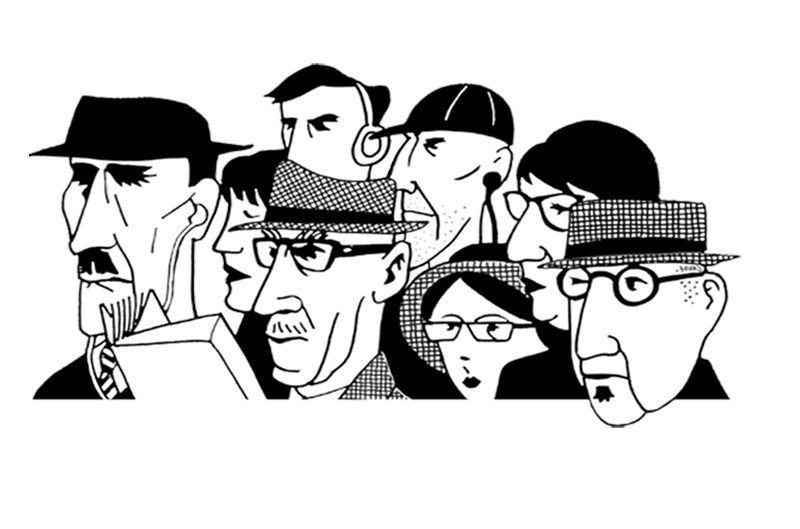Perfection: Shortlisted for the 2025 International Booker Prize
Vincenzo Latronico
Translated by Sophie Hughes
They have everything to make them happy. Expat couple Anna and Tom are living the dream in Berlin, in a bright, plant-filled apartment. Young, cool digital creatives, they enjoy slow cooking, Danish furniture, progressive politics, sexual experimentation and the city’s twenty-four-hour party scene.
It’s exactly the life they had imagined for themselves. But they begin to feel disillusioned, bored. Work becomes repetitive. Friends move away, have children, grow up. An attempt at political activism proves fruitless, since their direct action amounts to taking an Uber only if it is snowing, tipping in cash, never eating tuna.
Trapped in a lifestyle optimised for digital perfection, yearning for authenticity, they find themselves doing something they could never have predicted.
Vincenzo Latronico’s stylistic mastery, wit and wry humour make Perfection a brilliant novel about contemporary life.
INTERVIEWS and REVIEWS
ABC Radio National: The Bookshelf (0:37:35)
ABC Radio National: The Book Show (0:19:00)
ANZ Lit Lovers
Beyond Zero podcast
Bram Presser
Finding Time to Write
Guardian
Guardian (op-ed)
New York Times (Review)
New York Times (Profile)
New Yorker
NZ Booklovers
Paris End
Radio NZ: Nights
Service95
To Be Magazine
Washington Post ($)
Words Without Borders
andPerfection
‘Sharp and revelatory. Latronico demonstrates that, despite their vanity, his characters Anna and Tom are not so different from others whose lives are conditioned by the consumer economy—they want what others want: a life that is legible to them yet not prescribed. Latronico is a brilliant and fearless writer. I recommend this novel to every reader I meet.’
‘A writer who sees clearly and conveys it beautifully. In Perfection, he paints a stark picture of the conditions that have created a generation’s “identical struggle for a different life”: globalization, homogenization, the internet…I can’t recommend it highly enough.’
‘One of Europe’s most talented young writers, Latronico has written the great Berlin novel we’ve all been waiting for.’
‘A jewel of a novel: precisely cut, intricately faceted, prismatically dazzling at its heart. Vincenzo Latronico is the finest of writers.’
‘A new master of Italian literature.’
‘Perfection masterfully updates Georges Perec’s masterpiece Les Choses.’
‘A generation-defining piece of literature, one that spares us nothing. To read it is to look in a mirror and finally, for the first time, truly see yourself and the culture you’ve helped create: the one that lurks behind the filters, algorithms and curated ephemera of selfhood that make up our public lives. Read it and tremble.’
‘This book gives startling form to the question of how to live a meaningful life; to the illusion that appearance is beauty; to the restlessness of contemporary society. I read it in a breath and I was captivated.’
‘ is dense with ideas, feelings, political insights, beautiful turns of phrase, unexpected observations about ordinary occurrences.’
‘Masterful…Quite brilliant.’
‘An important novel, innovative in its own way.’
‘Never succumbs to the temptation of ridiculing its protagonists. Whether or not they live in Berlin, many of its readers will belong to the same class and generation as they do, and bald contempt is generally less effective at inducing the discomforts of recognition than keen, tactful observation.’
‘Latronico has a sharp eye for socio-cultural critique.’
‘The world of this horrifying novel has been built piece by perfect piece – honey-coloured floorboards, a monstera’s perforate leaves, glossy white tiles, a breakfast of assorted seeds, a game of Carcassonne – the method of its construction likewise perfect, a perfection of prose that ends by releasing, miraculously, the very thing perfection is made to prohibit, the heavy stink of mortality.’
‘I’m calling it, [Perfection is] going to be this summer’s cool-girl novel.’
‘Latronico is biting and withering, a funny critic of certain habits of mind and social conventions, which works especially well for the Berlin expat set…What’s notable about Latronico’s experiment is that by borrowing Perec’s mode of caricature—exporting it into the present—he shows something universal about generations and their anxieties.’
‘Latronico’s conceit is clever and will delight anyone familiar with his source material, but his execution is ingenious.’
‘A beautiful, thoughtful, impeccably crafted book.’
‘Hilariously contemporary, this short realist novel will keep you firmly grounded. It’s truly perfection.‘
‘Observant, analytical…[Latronico’s] style is witty, occasionally acerbic, but never unkind or pompous.’
‘A wry exploration of modern life, leaving the reader questioning what can bring meaning in an era where even authenticity feels commodified.’
‘A novel for our times…Strangely thrilling.’
‘Short yet shrewd, Latronico performs and exacting vivisection on the global gig economy.’
‘A fun, quick read which made me wince in recognition.’





